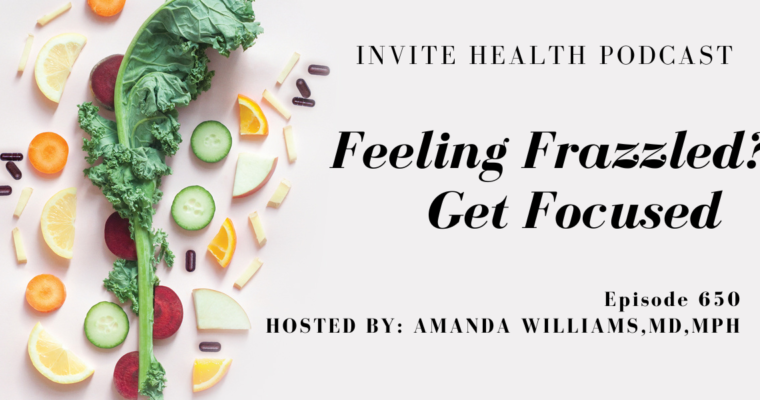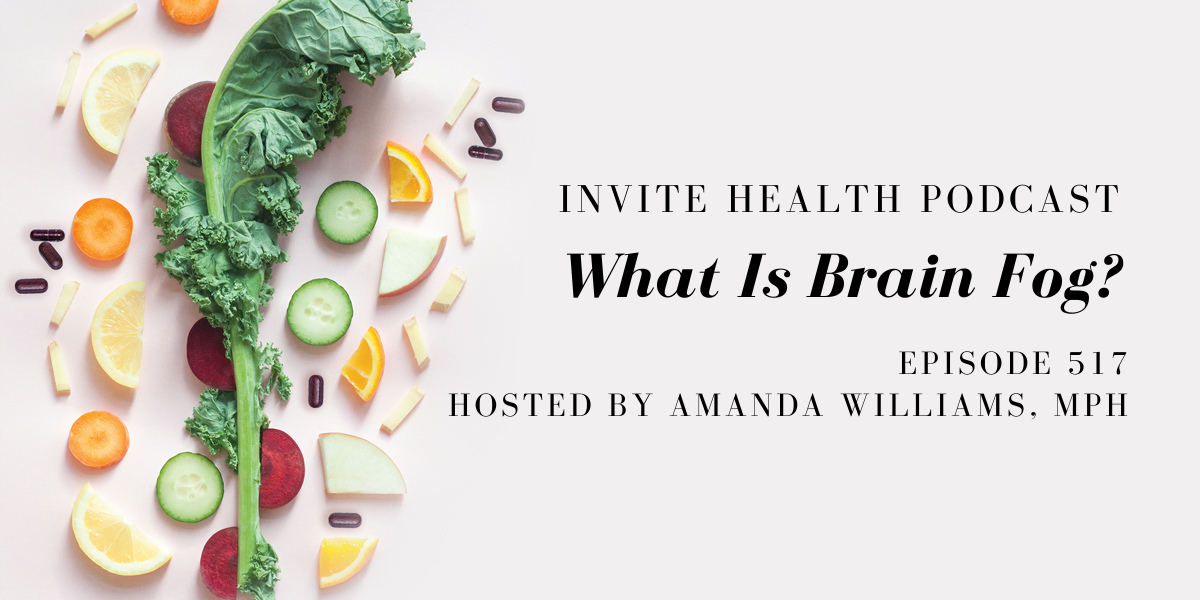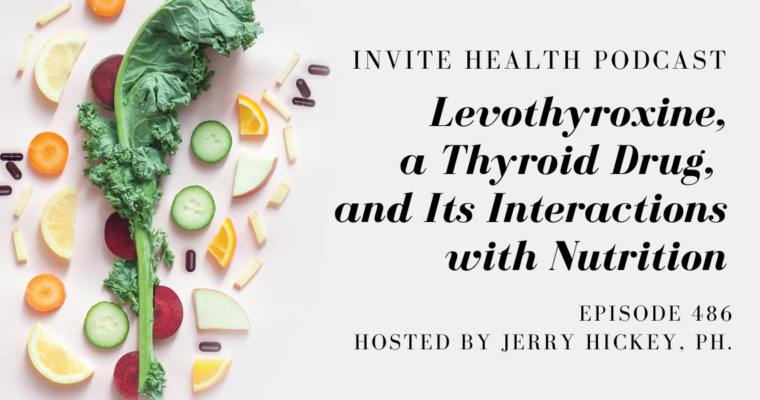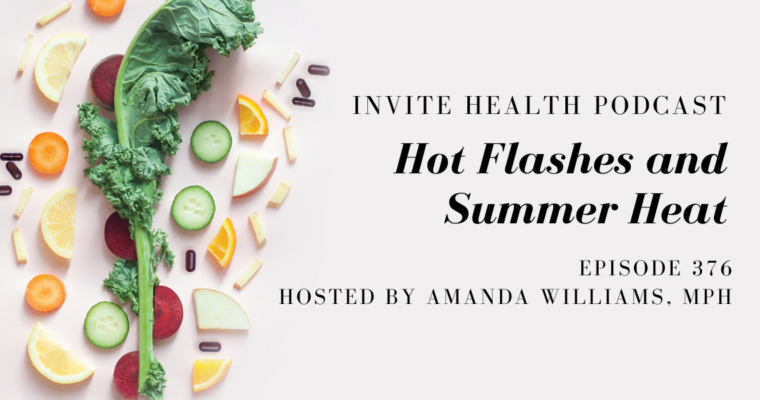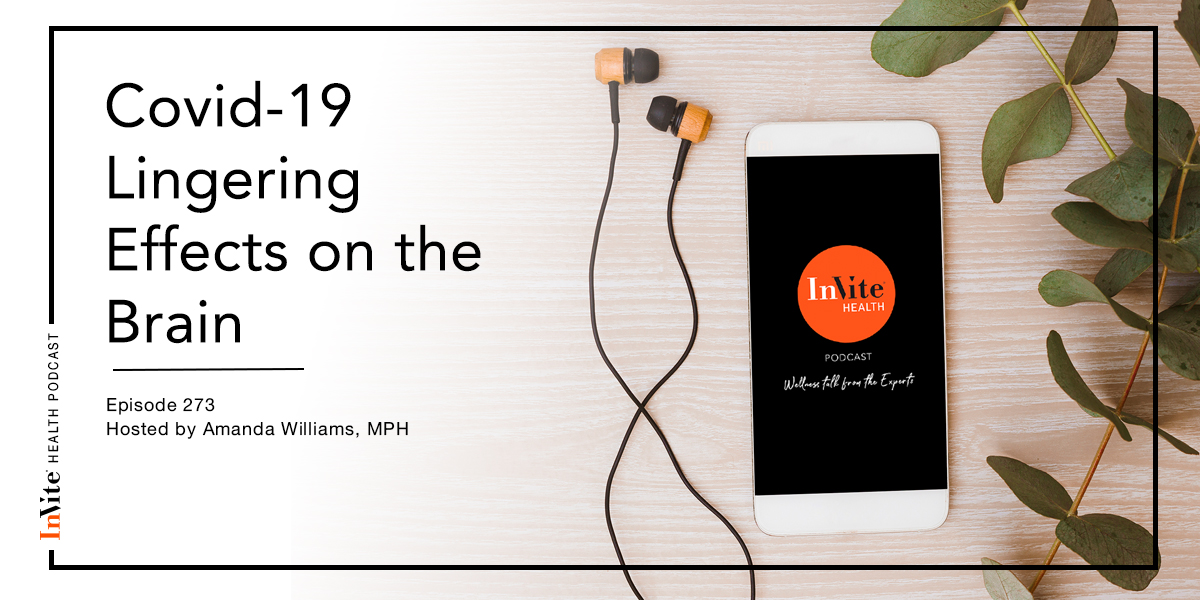brain fog
Subscribe Today!
Please see below for a complete transcript of this episode.
What Is Brain Fog? – InViteⓇ Health Podcast, Episode 517
Hosted by Amanda Williams, MPH
*Intro music*
InViteⓇ Health Podcast Intro: Welcome to the InViteⓇ Health Podcast, where our degreed healthcare professionals are excited to offer you the most important health and wellness information you need to make informed choices about your health. You can learn more about the products discussed in each of these episodes and all that InViteⓇ Health has to offer at www.invitehealth.com/podcast. First time customers can use promo code PODCAST at checkout for an additional 15% off your first purchase. Let’s get started!
*Intro music*
Amanda Williams, MPH:
[00:00:40] When it comes to brain health, we all want to try and do everything that we can in terms of making sure our brains last a lifetime for us, right? But many folks experienced something known as brain fog, and I want to talk about brain fog in some detail today and some nutrients that can be beneficial when it comes to the issues that arise with brain fog. So I’m Amanda Williams, MD, MPH, and brain fog in general. When we just hear that term, like, “I just feel like cloudy in the head.” And oftentimes people feel like this after they’ve been sick or while you’re sick. So you get the flu and you just feel like, ugh, your head feels kind of stuffy and you feel like you just can’t focus. What we recognize brain fog to be is a general decrease in mental energy and focus. Now, who wants to have that? Who wants to feel mentally fatigued and feel like you can’t focus? Not too many folks out there. So we oftentimes just kind of put it into this reference of like a fog. And if you’ve ever had a drive in fog before, you know that that’s not a fun experience. So this clouding that can lead to forgetfulness or just kind of feel fuzzy and maybe a little confused, or maybe you’re trying to do a task and you’re having a difficult time concentrating with this. This can be incredibly annoying.† [00:02:03]
UPDATE: GREEN TEA AND THE FLU – INVITE HEALTH PODCAST, EPISODE 496. Listen Now>>
[00:02:04] So when it comes to brain fog, we always want to try and figure out what is the root cause of this and how do we address it? Well, we know that there are many different conditions that can drive up this kind of mental taxing load in our brains. We think about inflammatory disorders. There can be sensitivities to certain foods that maybe create this. So when people eat maybe dairy, they feel kind of cloudy in the brain, and this is actually a lot more common than we recognize. We know that when people have brain fog on a regular basis, we must always look at histamine and the over release of histamine, which can drive this irritation and inflammation within the brain. And what happens is we’re actually creating this imbalance in our neurotransmitters. And so the little tiny neurons in the brain that are responsible for releasing these very important neurotransmitters, they’re not working very efficiently.† [00:03:07]
[00:03:08] So we want to think about ways that we can target this. How can we utilize different nutrients that can be beneficial when it comes to neuroinflammation or inflammation that’s occurring in the brain? So we know that there’s a lot of different things out there, including things like resveratrol, for example. They’ve done multiple studies with resveratrol and seeing how that actually works by a couple of different pathways for targeting the inflammation and helping to enhance the way that our brain is functionally working in a much, much more efficient way. Phosphatidylserine, one of those key phospholipids in the brain that helps to support the, the actual structure of your neurons or the brain cells. But also when we think about making acetylcholine, phosphatidylserine’s very important for this. We know that when our brains are stressed out, say, for example, you’re going to do a big interview or you have a big exam at school or whatever might be driving up your stress in your life, we know that when we utilize phosphatidylserine, this key membrane fat, that it does a couple of different things for us. Number one, it helps to make sure that those brain cells aren’t getting dinged around. That’s key. The other thing that we know it does is it helps with the regulation of our adrenal glands. And this is really important because we have to recognize that it’s not only a neurotransmitter slash inflammation process that drives up brain fog, but it’s certainly linked to hormonal imbalance. So you have a lot of people who have thyroid dysfunction who will experience brain fog, and this is one of the big complaints that folks who have like underactive thyroid will say, “I just feel foggy in the brain all of the time.” Or here’s probably the biggest example is women going through menopause or postmenopausal women will complain oftentimes about having brain fog, like “I just feel like I have cobwebs in my brain and I can’t think as quick as I used to, and I just don’t feel as focused,” and this can be really detrimental to our health because then you’re just irritated all the time because your brain is not feeling as youthful as it once used to.† [00:05:23]

[00:05:23] So we know that balancing our hormones is certainly important, and there’s a lot of different ways we can do this, even outside of doing actual hormone replacement therapy. We can utilize different nutrients that can help when it comes to the regulation of different hormonal pathways. So one more thinking along the adrenal pathway, we can think about things like rhodiola. This is a really nice way for us to get our brain back in check. They’ve done studies with rhodiola where they find that when they put people in a high stress environment and they give them rhodiola, their mental capability to be able to focus on their task without letting that exterior stressor basically kind of screw everything up, that rhodiola works really good in this setting. Now, the nice thing about rhodiola is that it also generates up energy, so you’re going to feel like you have more energy, and at the same time, you’re going to have this much more acute focus. So hence that brain fog is leaving.† [00:06:22]
[00:06:23] Now, if we’ve got problems with our blood glucose, we know that this can impact our brain. So if we have insulin resistance, then we want to make sure that we’re incorporating in things like chromium, alpha lipoic acid. Certainly things that we know can help our body when it comes to waking up those insulin receptors. And this is very important. Now, we have to always be cognizant of the foods that we’re eating. If we’re having bad foods, high sugar foods, this is going to just exacerbate that brain fogginess. So we want to have high fiber foods, foods that are packed with powerful antioxidants. So what am I talking about? Fruits and vegetables. We know that the fruits and vegetables really can do so much when it comes to our brain health. Look at blueberries, for example. Those are like a super brain food. So keeping in check the amount of added sugars and bad carbohydrates and bad fats that we have in our diet, that’s one aspect of it. Then targeting whatever particular hormonal pathway, or sometimes it’s multiple hormonal pathways that can be linked to that brain fog. And I said, if it’s post-menopausal, women definitely want to maybe go in and have your DHEA sulfate level tested many times. If your DHEA sulfate level’s incredibly low and you take a small dose supplement, maybe 25mg three or four days out of the week would be incredibly advantageous.† [00:07:55]
CHROMIUM SUPPORTS HEALTHY WEIGHT, MUSCLE & BLOOD SUGAR – INVITE HEALTH PODCAST, EPISODE 199. Listen Now>>
[00:07:56] Now, for significant amounts of brain fog, then we can look at other hormonal options, such as pregnenolone, but definitely DHEA. For many women who are going through that perimenopause and menopausal symptoms, they’ll find that when they add in just a small amount of DHEA, it helps to create an awful lot of balance for the brain, for your mood, for your adrenal glands because remember that DHEA is an adrenal hormone. So we want to take a food-based approach. We certainly want to utilize nutrients that we know can help wake that brain up. So that’s your rhodiola, things that are going to help those brain cells from getting dinged around, so that’s where your phosphatidylserine comes in. That resveratrol, which kind of goes in and through these different pathways works is like a little house cleaner goes in and make sure that where things are dunked up in your brain kind of goes in and scrubs it all away. So this is just a simplified approach to dealing with brain fog, which we know is much more common than we give it credit for. And we don’t want to allow things such as inflammation and hormonal imbalances to create havoc in our life. And if it’s on that aspect of histamine and maybe it’s an allergic component, then you’d want to look at things such as the Black Seed with Rosemary Extract. That is a wonderful way. Rosemary, we know, is incredibly beneficial when it comes to regulating how much histamine our body releases. So definitely think about it. Think about if you experience brain fog, maybe it comes and goes. Maybe you feel like you have chronic brain fog. There are many different nutrients that can help to support that mental fatigue and that cloudiness that you may be experiencing.† [00:09:47]
[00:09:48] So that is all that I have for you for today. I just want to thank you so much for tuning in to the InViteⓇ Health Podcast. Remember, you can find all of our episodes for free wherever you listen to podcasts or by visiting invitehealth.com/podcast. Now, do you make sure that you subscribe and that you leave us a review. You can follow us on Facebook, Twitter and Instagram, and we will see you next time for another episode of the InViteⓇ Health podcast.† [00:09:48]
*Exit music*



